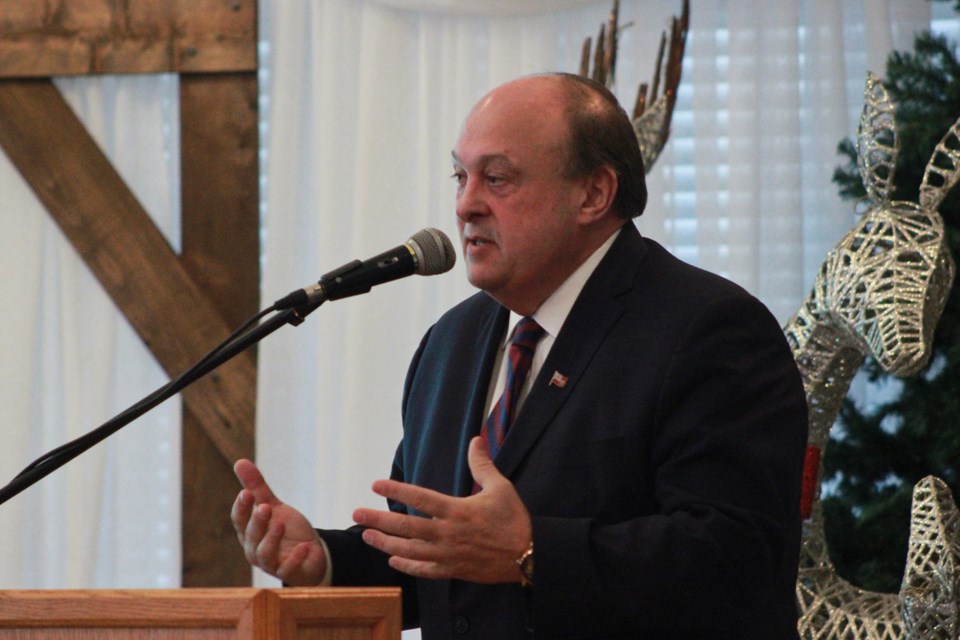Mental health services for youth are one of the offering that will be provided by seven youth service sites that are being established in Guelph and Wellington County.
The Integrated Youth Services Network (IYSN) will offer a variety of services, ranging from mental health and substance use, education, employment, training, housing and other community and social services, peer services, outreach, and system navigation services.
The sites are expected to be up and running sometime in 2020.
The announcement made at the Ariss Valley Golf and Country Club Friday saw community organizations partnering with the Rotary Club of Guelph to form the IYSN.
The plan has been in the works for the past year with the vision is to create an integrated network of services that supports youth between the ages of 12 to 26 in a ‘one-stop-shop manner.'
In the past year, organizations got together and recognized there is a problem as there was a spark in youth suicide. Subsequently, workshops were created to determine if there was a willingness to create a youth hub, funding was organized, teams met provincial health teams and MP Lloyd Longfield brought federal support.
“It’s taken many organizations to get to where we are today,” said Rotary Club of Guelph President Carolyn Weatherson.
“We’re trying to steer the ship as we build it and it certainly isn’t perfect but we have made significant progress and expect 2020 to be a monumental year. This initiative is all about inclusiveness,” she said adding that any organization that wants to be included can play a role.
The proposed initial IYSN sites set to establish in 2020 include four sites in Guelph: the Guelph YMCA, University of Guelph, Canadian Mental Health Association Waterloo Wellington and the Shelldale Family Getaway.
The three rural sites are in Palmerston, Fergus and Erin.
According to the IYSN, The challenge across Canada is that one in five youth between the ages of 15 and 26 experience mental health and/or substance use disorders and 75 per cent of all those mental health conditions have their onset by early adulthood.
Hospitalizations in Guelph since 2007 and Wellington County have increased 223 per cent for mental health and behavioural disorders and 211 per cent for intentional self-harm and services to address these needs are either not available, not accessible, not responsive to the needs and preferences of youth and family or not integrated which results in youth and families constantly falling through the cracks.
Community organizations partnering with the Rotary Club of Guelph on the new proposal include the Guelph YMCA/YWCA, Guelph Community Foundation, Canadian Mental Health Association Waterloo Wellington, the University of Guelph, Wellington Catholic District School Board, Upper Grand District School Board, Family and Children’s Services GW, Wyndham House, WWLHIN, Wellington County, Michael House, Centre Wellington Big Brothers Big Sisters, East Wellington Community Services, Minto Mental Health, and Shelldale Family Gateway.
Many of the youth in Guelph need all of to think and act differently. The challenges they are facing are significant and there is no one cause that is at the root of these challenges,” said Guelph YMCA CEO Geoff Vogt, adding that not a single organization can come up with an independent solution and rather, it requires a collaborative effort from the community.
Michael Tibollo, associate Minister of Mental Health and Addictions, told Friday's gathering that in 2010 the standing committee of the legislature came up with a study that indicated that there is a clear problem with access to the system, that the system is fragmented and the quality of services delivered is fragmented not only in southern Ontario, but in northern Ontario and within Indigenous communities also noting that there was no way to measure the positive differences being made.
Tibollo said it is important to reflect on what has been done and whether it is being done in the best way.
“Now we all know that primary care is the place that services should be delivered. So they should be in the community and the way to deliver those services I believe, I think we all believe is that they should be at the grassroots level which means that those services have to be provided by community groups with support of organizations that have the ability to understand or at least promote the issues that need to be promoted,” said Tibollo.
